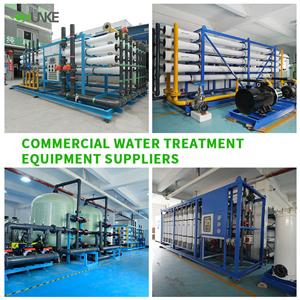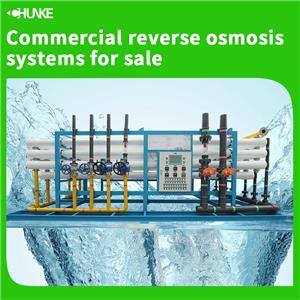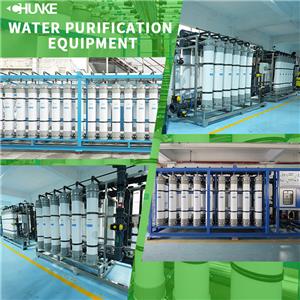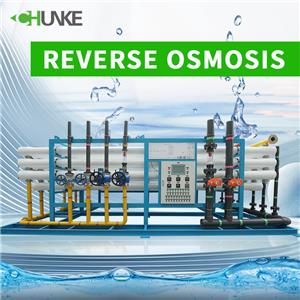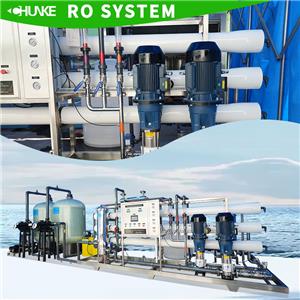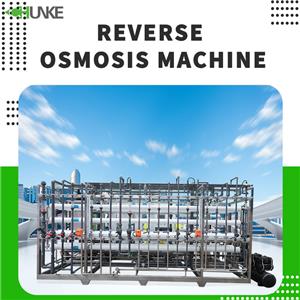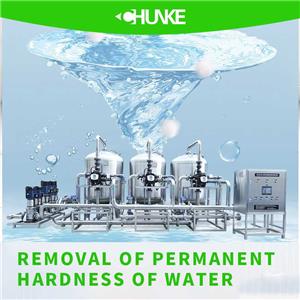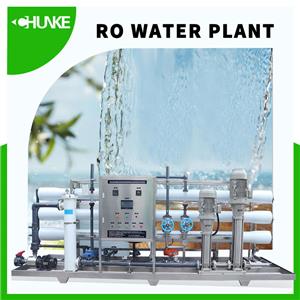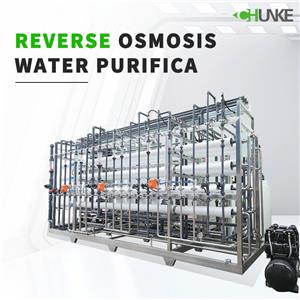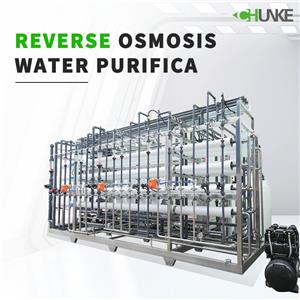-
06-05 2024
What is a commercial water treatment system?
Commercial water treatment systems refer to equipment and processes used to treat water quality in commercial and industrial locations. Commercial water treatment systems typically consist of a variety of components, including filters, softeners, reverse osmosis systems.
-
05-28 2024
Are there commercial reverse osmosis systems for sale on the market?
CHUNKE commercial reverse osmosis water purification system is one of them, which is mainly used to purify water. Priced from US$1,000 to US$8,000, the system includes components such as booster pumps, pretreatment tanks, filter housings, chemical metering systems...
-
05-27 2024
Which is Better, UV Water Filter or Reverse Osmosis Water Filter?
UV filters mainly focus on killing pathogens in water, but cannot remove impurities and suspended solids in water, while RO water filters can comprehensively purify water. If there are more impurities and suspended solids in your water source, a reverse osmosis water filter may be a better choice. If the main concern is microbial contamination of the water, a UV filter may be more appropriate.
-
05-24 2024
Why Shouldn't You Use Reverse Osmosis Water?
Reasons not to use reverse osmosis water: When cooking vegetables, meats and grains, reverse osmosis water can cause up to 60% of the calcium and magnesium in the food to be lost. Other trace elements, such as copper, manganese and cobalt, may be lost at even higher rates, as high as 66%, 70% and 86% respectively. These minerals and trace elements are essential for human health and nutritional balance.
-
05-23 2024
Do You Need to Add Minerals to Reverse Osmosis Water?
The need for added minerals also depends on personal preference and health needs. Some people may prefer purified water, while others are more focused on the mineral content of the water. When choosing whether to add minerals, the decision can be based on personal needs and preferences.
-
05-22 2024
What Does Reverse Osmosis Machine Do?
The main function of the reverse osmosis machine is to remove impurities, dissolved solids, bacteria, viruses and other harmful substances in the water through a semipermeable membrane. This makes reverse osmosis systems a reliable drinking water purification technology. Through the pre-filter, large particles and sediments in the water are removed to prepare for the subsequent reverse osmosis process.
-
05-14 2024
What is permanent hardness in water and how to remove it?
The permanent hardness of water mainly comes from the calcium sulfate and magnesium sulfate in the water. The main methods for removal of permanent hardness of water include ion exchange and adding complexing agents. Ion exchange is the adsorption of calcium and magnesium ions in water through ion exchange resin. Adding a complexing agent is by adding a certain amount of complexing agent to the water.
-
05-10 2024
What does RO in water plant mean?
Reverse osmosis (RO) is a common process for purifying or desalinating contaminated water by forcing it through a semipermeable membrane. This technology creates pure water by applying pressure to move water through a membrane, expelling impurities, salts, and other contaminants from the water. The pore size of the reverse osmosis membrane is extremely small, usually about 0.0001 micron, and can effectively filter out small impurities.
-
05-09 2024
Can reverse osmosis water purifiers remove microplastics?
Reverse osmosis water purifiers can effectively remove microplastics. This is due to its advanced filtration process and the extremely small pore size of the semi-permeable membrane. The reverse osmosis system achieves efficient removal of microplastics mainly through three aspects: filtration accuracy, efficient filtration process, and removal of various pollutants.
-
05-08 2024
What is the service life of a reverse osmosis water purification system?
The service life of a reverse osmosis water purification system is typically between 10 and 15 years. The life of the system depends on a variety of factors, including water quality, maintenance, and the quality of the system components. Frequent cleaning and replacement of filters and reverse osmosis membranes can help extend the life of your system.





